Just over a week before President Duterte declared a public health emergency in the Philippines, we at Masungi Georeserve faced a similar battle against efforts to quarry.
On February 26, a painful sight greeted us on an otherwise typical day of removing cogon grass and creating fire breaks for the dry season.
We had found barbed wires and nails hammered into trees at the Masungi Geopark Project, cutting off a significant part of our reforestation project with the government.
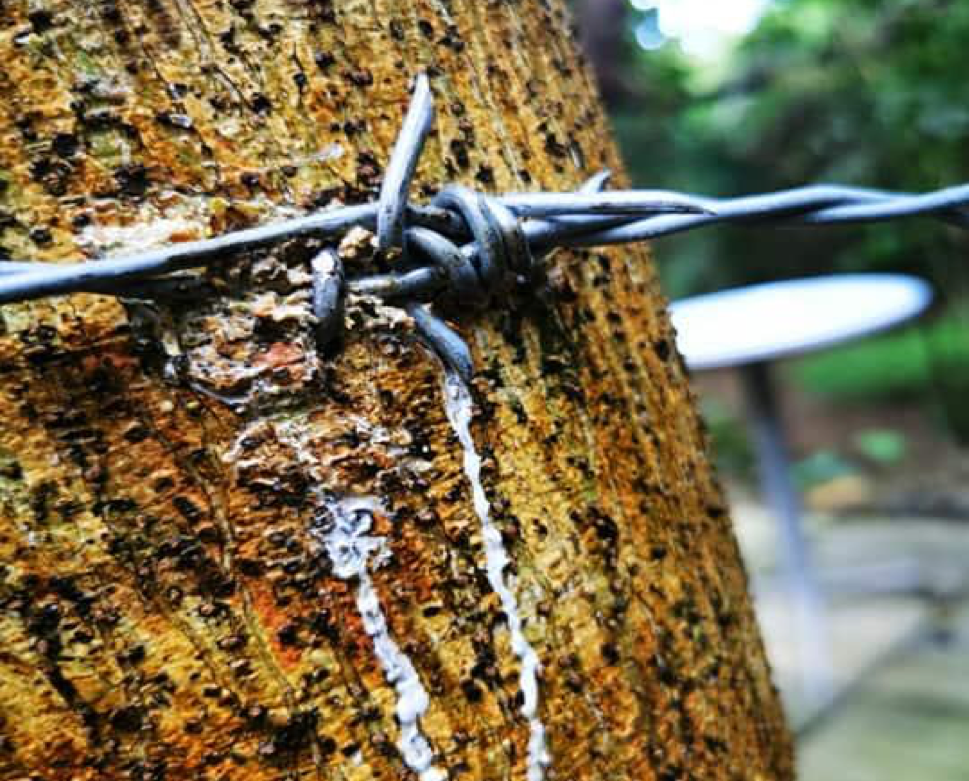
While the DENR ordered the quarry to be closed and mining permits to be cancelled, the battle is not over. While most of us have been on home quarantine, suspicious activities by unidentified men have been reported on site.
The battle has just begun, but we are not ones to be afraid.
Women Warriors
At the frontlines our battle against quarrying and other threats to the Masungi landscape are our park rangers. At least 49% of our park rangers are women working in meaningful restoration work, nearing a gender-neutral balance in an otherwise heavily male-oriented field.
As we end Women’s Month, we celebrate our women park rangers and talk to three of them about how they are coping with ongoing battles against quarrying, gender stereotypes and the health crisis.
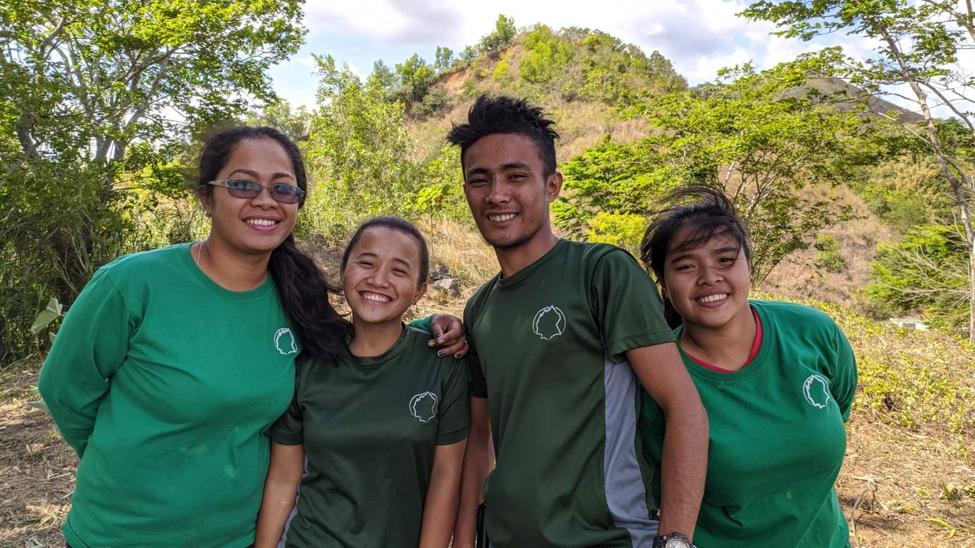
Shiela, Park Ranger
Shiela is a single mother with a 4-year-old daughter. The father of her daughter passed away right after she gave birth to their child, leaving her alone to support the family.
When the opportunity to become a park ranger presented itself, she took the chance to apply, since Masungi is near her home and she can continue taking care of her daughter. Since then, she says her role as a park ranger has widened her experiences.
“Dati karamihan lalaki lang ang nagpa-park ranger. Ngayon, napapatunayan namin na kaya din ng babae magdala ng hanggang 14 na tao at makisalamuha sa iba’t-ibang uri ng tao. Kahit dalawang ikot nagagawa rin namin,” she says.
(“Before, mostly all park rangers were men. Now, we prove that we can guide even big groups of 14 people, and that we can get along with different types of people. We can even do two rounds of guiding”).
She talks about how she is able to implement rules to visitors and talk to her male colleagues as equals. “Yung pagiging confident sa sarili, yun ang natutunan ko.” (Being confident with myself is what I learned [in Masungi].)
Shiela knows that while the quarry may give short-lived jobs to people, it is only nature that can give the community benefits for the long-term.
Amid the COVID-19 pandemic, she invites mothers like her to be more aware of what they do to the environment on a daily basis. “Maging mulat sana tayo sa ginagawa natin sa pang-araw-araw. Hindi man natin maiwasan ang ganitong sakuna, maaaring mabawasan ang mga ito. Kung hindi, palala ng palala ang mangyayari sa mundo.”
(“We should be more aware of what we do to nature on a daily basis. While we cannot avoid these things from happening, we can lessen the chances. If not, we will face problems far worse than this.”)
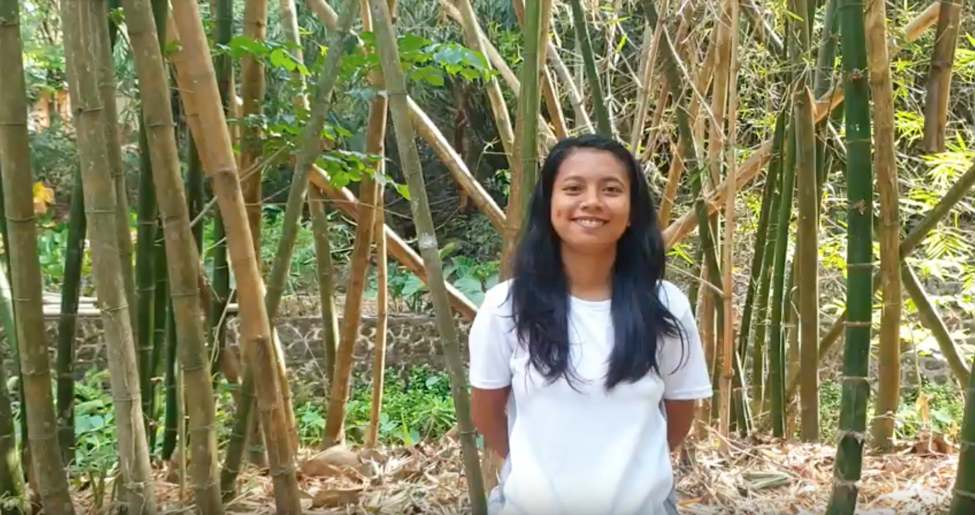
Cherry, Learning and Development Officer
Another park ranger breaking gender stereotypes is our young environmental education officer Cherry. A graduate of biology, she enjoys imparting her knowledge on the natural world to park rangers and community members.
“I grew up in the province, among hills, mountains and the ocean. That’s when I started to get close to nature. I promised myself that someday, I’ll also work for nature,” she reflects. Cherry grew up in Ilocos and studied in Metro Manila, where the contrast between city and nature became apparent.
She applauds her co-women park rangers in being able to do the same work that men do, from planting to weeding and patrolling. “We are not limited by our gender.”
She admits that sometimes she still has challenges. “Sometimes, when I disseminate policies and rules, the men still prefer to hear it from another male.”
This aside, she reiterates that it is important not to get boxed by the norms.
“Without nature, we cannot live. If the quarry for one continues, many will suffer because the community relies on nature for water, food and livelihood.”
She shares that the health crisis is giving her anxiety, being away from her family and not knowing how they are doing in the province. But, like her stance on work, she believes “there is still a lot we can do as women. It’s our heart (puso) that pulls us through.”
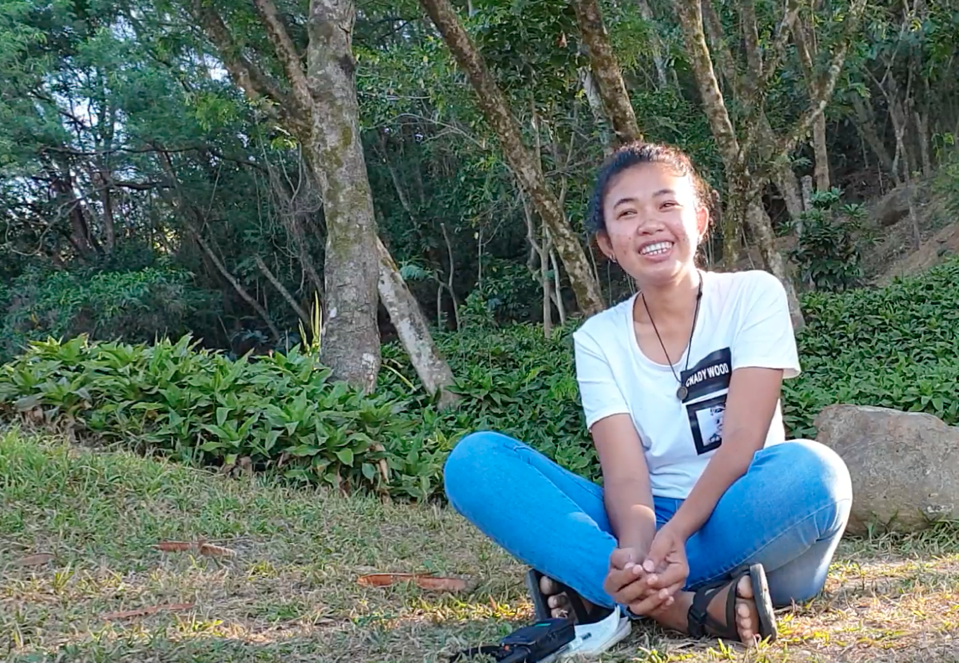
Angge, Reforestation Officer
For Angge, DENR Secretary Cimatu’s visit last March 3 to announce the closure of the quarry was one of the most memorable days she had as a park ranger.
“There were lots of media people and they asked us what our roles were at Masungi. We told them we are park rangers. They were surprised that there are women park rangers, that women can manage the security and patrolling of the forest,” she muses.
Angge admits that environment work can be daunting, but she wants to show that it can also be done by women. “At first, patrolling work can be scary. But now I’ve mustered the strength and vigilance to be able to do it. Even now, due to COVID-19, it has become more uncertain at work and at home, but like all things, one can achieve one’s goal despite the hurdles.”
Angge worked hard to be able to study and finish Environmental Science, as only her older brother was being groomed to complete his studies. Today, her work with Masungi enables her to send her younger sister to school and apply her knowledge at the same time.
One Team
We thank our park rangers for their commitment to nurture not only their own children, but generations of children, by committing to nurture nature at Masungi.
Masungi Georeserve protects and reforests almost 3,000 hectares of degraded land in a sensitive karst landscape in Rizal. A large part of this area is located in the Upper Marikina Watershed, the unabated deforestation of which resulted in the devastating landslides and floods that cost many lives when Ondoy struck in 2009.
With the COVID-19 crisis, our rangers are very worried that the impending loss of clean water and forest resources as a result of quarrying will make recovery from the ongoing health crisis even more difficult for communities. They are calling on citizens to help them protect and safeguard Masungi and other genuine reforestation projects like it in the Upper Marikina River Basin Protected Landscape.
Join the movement by following Masungi Georeserve and Save Masungi Movement on Facebook. If you haven’t yet, please sign the petition: bit.ly/savemasungi
Billie Dumaliang is the Advocacy Officer and a Managing Trustee of the Masungi Georeserve Foundation. She has worked with private and public sectors and communities on the topics of sustainable tourism, sustainable development and innovation. She was also a speaker at the UN CBD COP-14 Meetings in Sharm El Sheikh, Egypt.
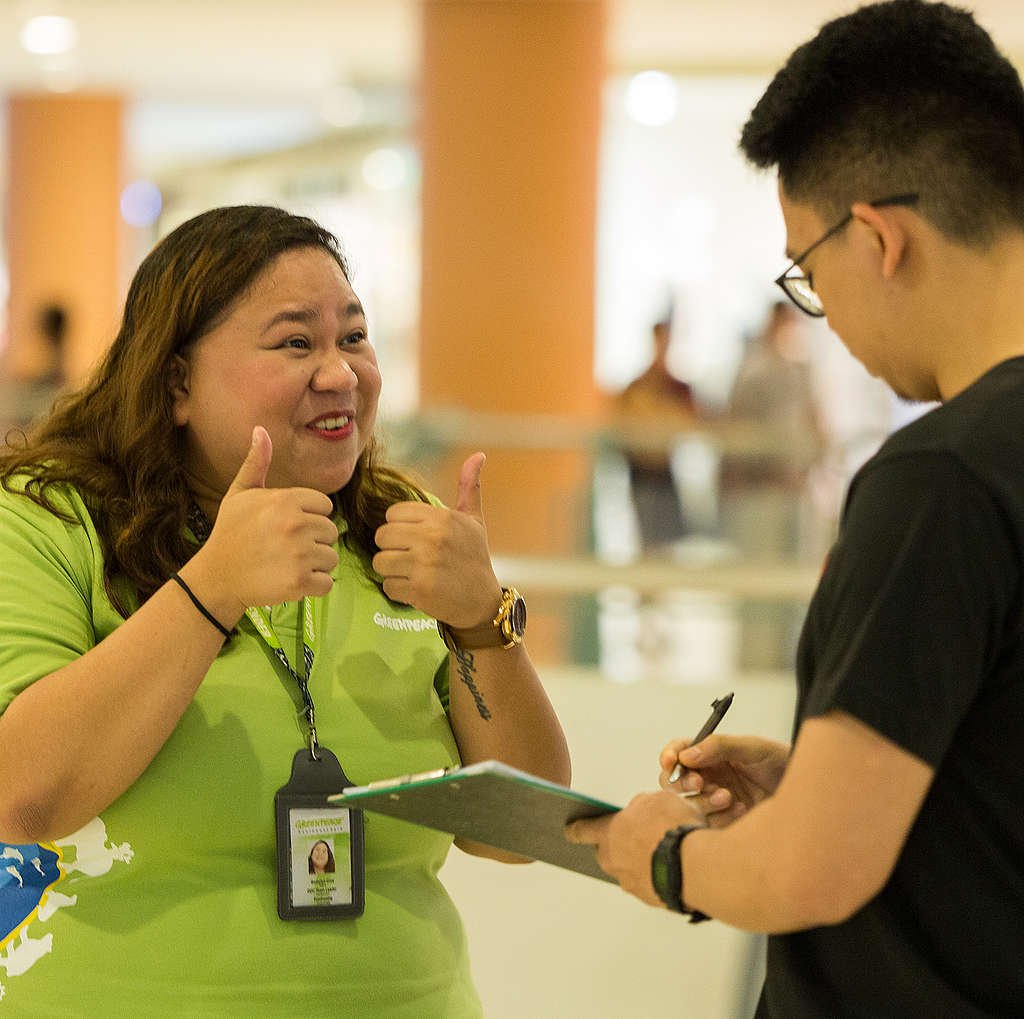
Any kind of continued support, no matter how much, is a big help in protecting the planet we love.
